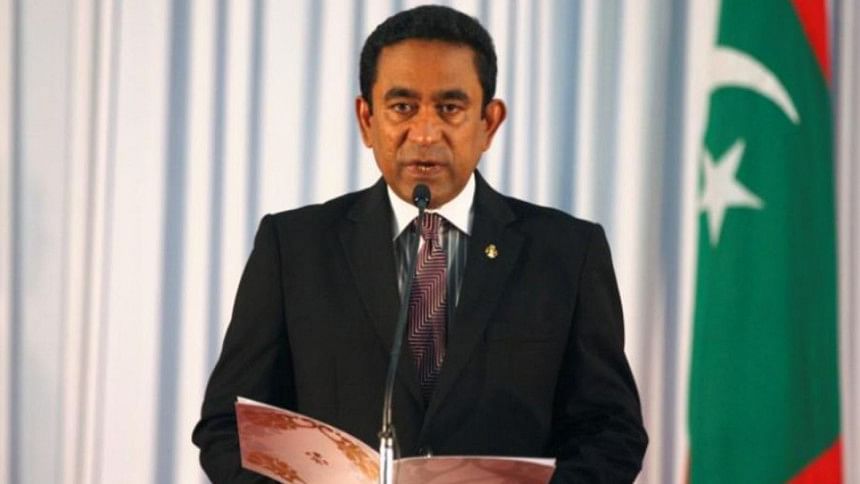Maldives president lifts state of emergency after 45 days

Maldives President Abdulla Yameen today lifted a 45-day-long state of emergency which had outlawed protests during a surge in political turmoil, saying he wanted things to return to normal.
Yameen initially imposed the restrictions on February 5 after a Supreme Court ruling quashed convictions against nine opposition leaders.
During the restrictions, Yameen’s administration arrested former president Maumoon Abdul Gayoom, the chief justice, another Supreme Court judge and a Supreme Court administrator on charges of trying to overthrow the government.
All four have been charged under terrorism laws. They have all rejected the charges.
The Supreme Court, now reduced to three bench judges after the arrests, went on to reverse its decision to quash the convictions of the opposition leaders.
Yameen’s office said there was still “a diminished threat to national security”, but he had decided to lift the restrictions “upon the advice of the Security Services and in an effort to promote normalcy”.
One of the opposition leaders mentioned in the Supreme Court ruling was former president Mohamed Nasheed, who was sentenced to 13 years in jail on terrorism charges but went into exile during a medical trip to Britain.
Nasheed, the Indian Ocean island chain’s first democratically elected leader, released a statement saying Yameen had imposed the state of emergency to overhaul the judiciary and legislature and make unlawful arrests.
Opposition parties said lifting the state of emergency would make no practical difference as Yameen no longer abided by laws or the constitution.
“He has also rushed remand hearings for a number key of state of emergency detainees to ensure their continued detention past the state of emergency,” the parties said in a joint statement.
Close neighbor India welcomed Yameen’s decision, but urged him to let the Supreme Court and other branches of the judiciary operate independently.
“It is important for the government of the Maldives to ensure credible restoration of the political process, as well as the rule of law, before elections are announced this year,” India’s external affairs ministry said.

 For all latest news, follow The Daily Star's Google News channel.
For all latest news, follow The Daily Star's Google News channel. 





Comments